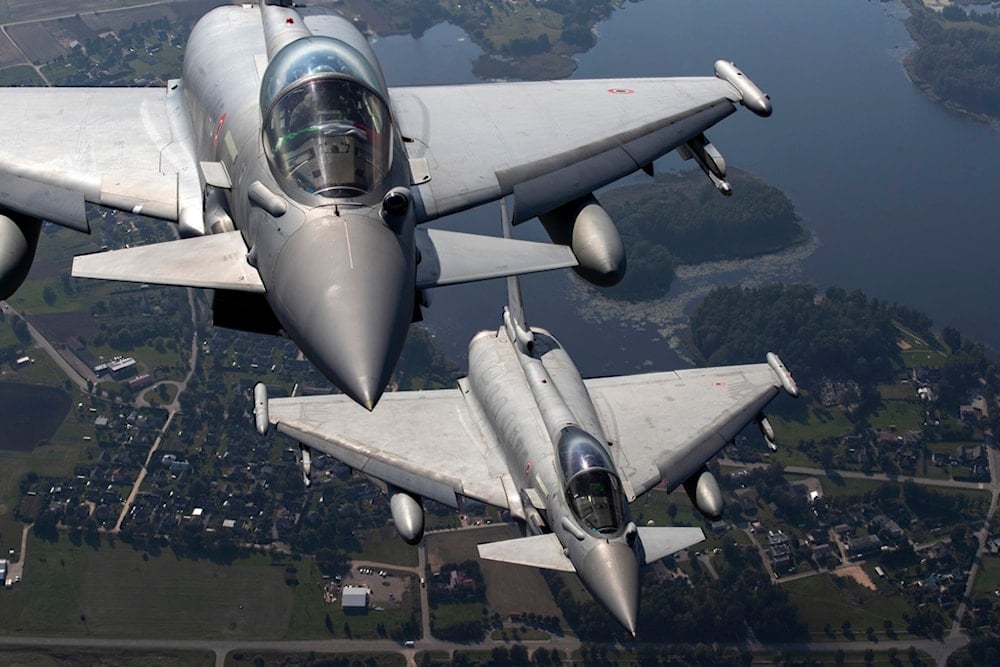Denmark rules out NATO article 4 after drone disruptions
Denmark has refused to invoke NATO's Article 4 over unexplained drone sightings that disrupted major airports, as the alliance faces widening internal discord and Russian denials of involvement.
-

Italian Air Force Eurofighter Typhoon military fighter jets participate in NATO's Baltic Air Policing Mission operate in Lithuanian airspace, on Sept.12, 2023 (AP Photo/Mindaugas Kulbis, File)
Denmark has dismissed the option of invoking NATO's Article 4 despite a wave of drone sightings that temporarily halted flights at several airports, including Copenhagen and Aalborg.
Foreign Minister Lars Løkke Rasmussen confirmed Friday that Copenhagen would not seek consultations under the NATO clause, stating, "We do not plan to do that. We maintain good communication with our NATO allies at all levels." His remarks followed Defense Minister Troels Lund Poulsen's earlier acknowledgment that Denmark had spoken to NATO and the EU but had made no move to escalate the matter.
The incidents, which saw airports pause operations for hours at a time, have been shrouded in uncertainty. Police described the drone flights as the work of "qualified actors," though no evidence has been presented linking them to any state.
Fractured Alliance
The timing of the disturbances has drawn attention, coinciding with a wider rift within NATO over alleged Russian airspace violations in Estonia, Poland, and Romania. Estoniarecently demanded emergency consultations at the UN Security Council, while Poland invoked Article 4 after claiming that Russian drones penetrated its territory, marking the first use of live fire against drones by a NATO member during the Ukraine war. However, the alliance remains divided: Poland and the Baltic states call for tougher rules of engagement, while Germany and southern members warn against reckless escalation that could hand Moscow a propaganda victory.
The United States has added to the confusion. President Donald Trump told reporters this week that NATO allies should "shoot down Russian aircraft if they are detected in their airspace," even as Secretary of State Marco Rubio reiterated that NATO's doctrine is to intercept, not fire, unless attacked. The mixed signals have underscored the perception of a bloc fractured between hawkish and cautious camps.
Read more: NATO discord deepens as allies bicker over Russian airspace breaches
Russia, which has been routinely accused without proof in similar cases, rejected the insinuations outright. Kremlin spokesman Dmitry Peskov noted that such claims against Russian forces have "never been supported by reliable data," stressing that Moscow operates strictly in line with international law. Russian officials further argued that the hysteria over drones is being weaponized to inflame tensions. Ambassador to Denmark Vladimir Barbin warned that the narrative surrounding the Copenhagen airport incident "reflects an attempt to provoke NATO countries into a direct military confrontation with Russia."

 3 Min Read
3 Min Read








